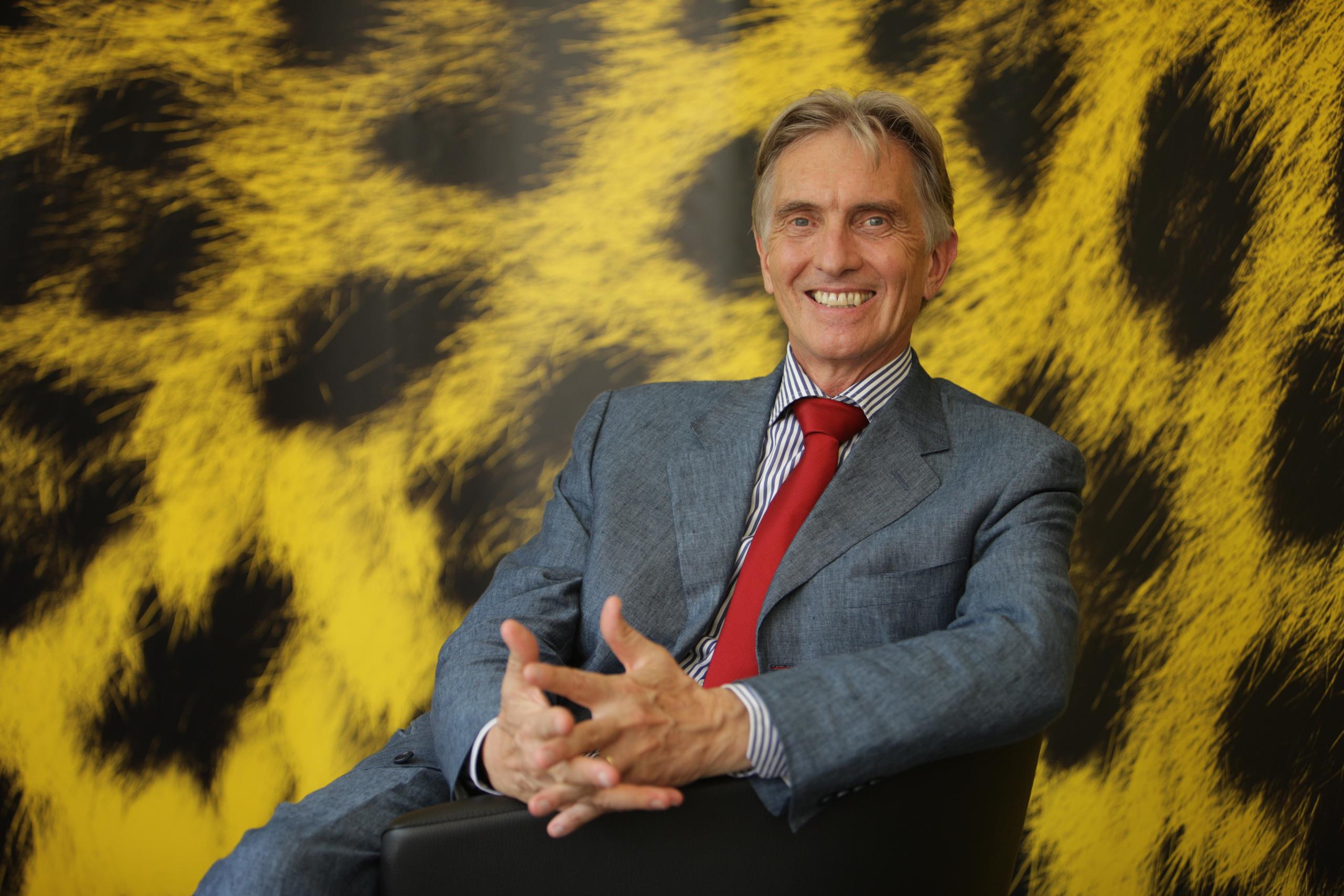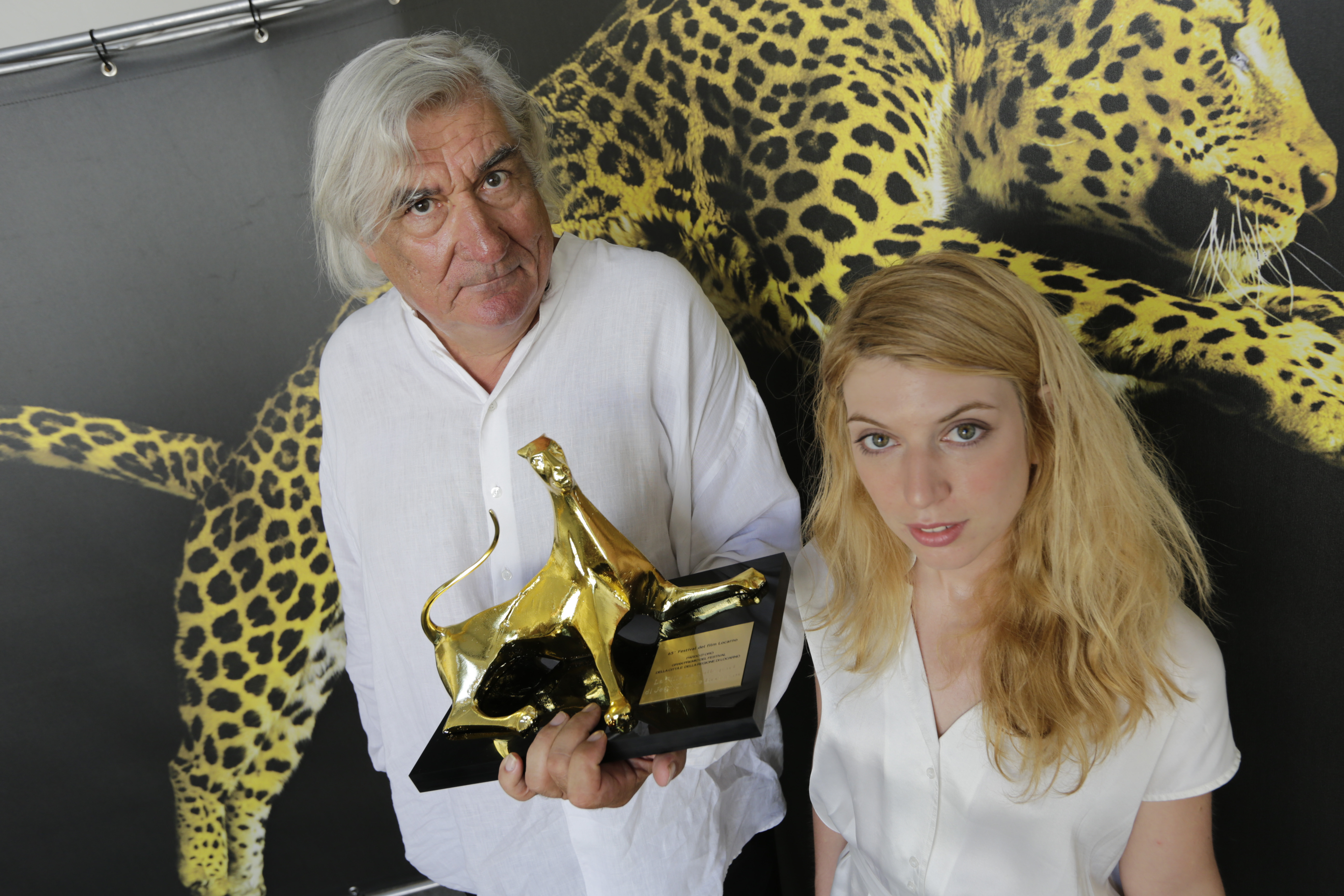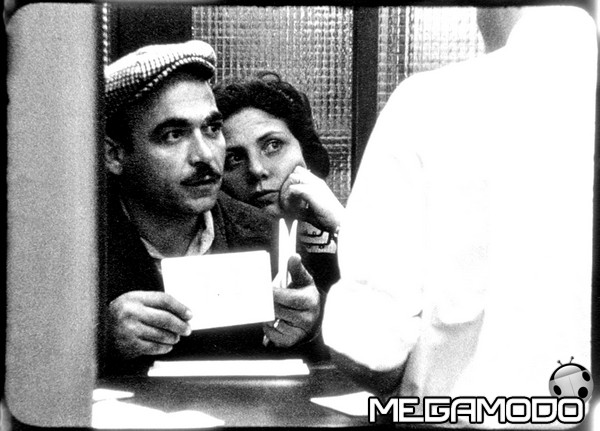‘The most independent festival in the world’

In his 15 years as its president, Marco Solari has left his stamp on the Locarno Film Festival. A convinced liberal, the 71-year-old executive is still defending the artistic autonomy of the venue against all attempts at interference.
swissinfo.ch: When you took over the presidency of the festival 15 years ago, Locarno was dealing with major problems – organisational, artistic and financial. What kind of shape is the festival in now?
M.S.: We have never been better. Over the past 15 years we have increased the budget from CHF4 million to CHF13 million ($13.4 million), and we have succeeded in striking a balance between public and private funding. To save the festival, we needed to take an entrepreneurial approach, so I brought to Locarno the sort of Calvinist ethic I was used to.
But like all cultural events, Locarno is always exposed to risk. There are 3,000 film festivals in the world, but only a dozen really count. If Locarno wants to be one of them, it needs to maintain a strong identity.
swissinfo.ch: So how would you define the identity of Locarno?
M.S.: We are probably the freest and most independent festival in the world. The artistic direction enjoys full autonomy, and it is subject to no pressure, either political or economic.
Marco Solari
Solari was born in Bern in 1944 to a family from Ticino. He earned his degree in social sciences in Geneva. In 1972 he was appointed executive director of Ticino Tourism, and in 1988 he was a federal delegate for Switzerland’s 700th anniversary celebrations. In 1992 Solari joined the Migros Federation of Cooperatives as CEO, a job he left in 1997 to take the role of executive vice-president of Ringier, a major Swiss media group, which also operates internationally. From 2007 to 2014 he was president of Ticino Tourism. Since 2000 he has served as president of the Locarno Film Festival.
swissinfo.ch: Yet the Locarno festival is regularly criticised for its artistic choices: Polanski last year, now the collaboration with the Israel Film Fund…
M.S.: The festival takes place in a democratic environment, and all debate is welcome. But when the artistic choices are intellectually honest, as in this case, I for one will not allow external pressures to prevail against them. There have always been attempts by private individuals, institutions, interest groups, and economic and political circles to influence who is invited or what is on the programme, but we have always resisted them. Otherwise we would be betraying the spirit of the festival.
As far as Israel is concerned, it should not be forgotten that Locarno is a place of dialogue. If there is no dialogue going on at the political level, maybe it’s a bit of an illusion to try to create it in Locarno. But the opportunity is there – and sometimes miracles do happen.
swissinfo.ch: In 2014, the Locarno film festival had about 170,000 participants, including spectators and film industry professionals. What sort of impact does the festival have on tourism?
M.S: The impact is actually huge, and not just in terms of numbers of people, but also in terms of promoting the region and the canton. It amounts to CHF30-50 million, at the very least. It is fundamental for the festival’s success, though, that it continue to be a cultural event, without having to make deals with anybody. Often enough, the films that are shown at Locarno are not exactly the restful conclusion to a day spent among the rivers, lakes and grottos. Sometimes they are as tough as a punch in the stomach, if only because cinema is a seismograph of the world, and today we are dealing with terrible events.
swissinfo.ch: In your 15 years as president, you’ve often had to represent the festival and Switzerland abroad. How are they perceived outside our borders?
M.S.: It is certainly true that Locarno is a festival known in Switzerland and to an interested public in Europe, but that’s as far as it goes. Outside Europe, the festival is known only to people in the business. That’s true even for Switzerland. Of course, we all have this experience: how well is Ticino known even in [neighbouring] Milan? When I go to explain the festival or Switzerland abroad, I find myself out in a huge field; I sow a few seeds, and with a little bit of luck, someday a plant will grow out of it.
In an environment where everything is amplified – especially with the Ticino media that make a big deal of it when a politician has a cold – we may think we are important in the eyes of the world, whereas in fact we are really small. That’s true even for Switzerland. To be sure, every so often this country of ours gets to play an important role, in humanitarian aid, with its good offices, and so on. But most of the time the perception of our importance has no relation to the real importance we have. And that – and I say it in all humility – holds true to some extent for the Locarno festival.
swissinfo.ch: The Locarno Film Festival profiles itself as a place of openness and encounters, but this is happening in a canton that seems to be closing in on itself.
M.S.: The festival needs to recognise and respect the fears of the ordinary people here. As president, I have to be non-partisan. Although I am a convinced liberal, I do my best to stay out of party politics, which often involve controversies that leave casualties behind. At times I find it difficult, but it’s just the price I have to pay.
swissinfo.ch: How do you explain the current isolationist malaise in Ticino, which seems to feel uncared for and misunderstood by the rest of the country?
M.S.: From the other cantons I always ask a certain amount of understanding for the particular situation of Ticino. The real Ticino native isn’t a person who thinks like the German- or French-speaking Swiss, but in Italian. People from Ticino have a different approach to things, another scale of values, other ways of relating.
If we value the multicultural nature of this country, we first and foremost have to recognise and respect it. We need to stop treating Ticino like a rowdy schoolboy.
In Zurich they don’t realise that Ticino is right next door to the largest urban space in Europe, with eight million people in it. Nor do they realise that the difference in pay rates between northern Italy and canton Ticino is at a ratio of one to three, four or five. That’s not the case for Geneva or Basel.
After Switzerland chose to go the bilateral route and open its borders, Ticino was immediately invaded by a tsunami of 65,000 workers from across the border, all prepared to work for minimum wage. This has had repercussions on the working world of Ticino and created a lot of resentment.
swissinfo.ch: After 15 years as president, and at the age of 71, have you had any thoughts of retirement?
M.S.: The Locarno president has to be able to do three things: raise funds, raise funds, and raise funds. As long as I am able to do this, as long as I believe in it, I’ll just keep going and I won’t think about that question. In fact, the whole team, myself included, have one big goal in view: “Locarno 75”, in 2022. So just do the math…
Switzerland in Locarno
The 68th edition of the festival takes place from August 5-15, 2015. Among the 19 films in the international competition is “Heimatland”, a joint effort by ten young Swiss directors. Switzerland will also be represented on the big screen on the Piazza Grande with “La Vanité” from director Lionel Baier, the short film “Erlkönig” by Georges Schwizgebel, and “Amnesia” by the Swiss-French film-maker Barbet Schroeder.
Translated from Italian by Terence MacNamee

In compliance with the JTI standards
More: SWI swissinfo.ch certified by the Journalism Trust Initiative













You can find an overview of ongoing debates with our journalists here . Please join us!
If you want to start a conversation about a topic raised in this article or want to report factual errors, email us at english@swissinfo.ch.